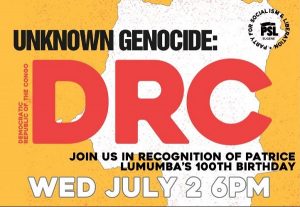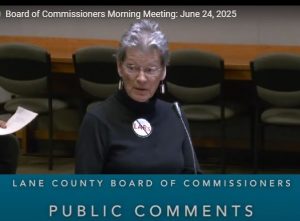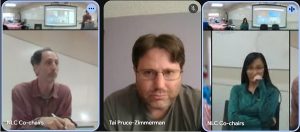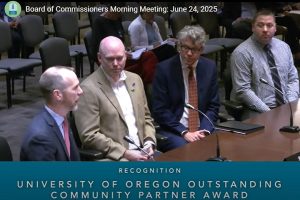Eugene council hears support and new questions on its middle housing ordinance
10 min read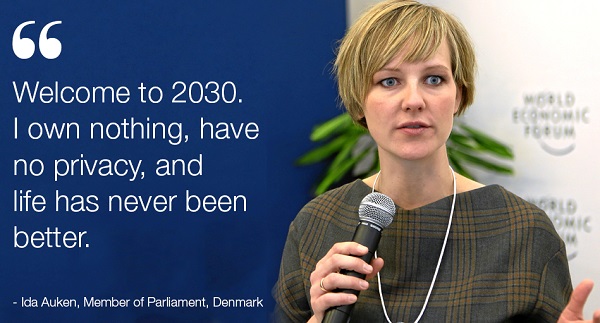
Eugene holds a public hearing on what the city hopes will be the final version of its ambitious set of land use changes, extending the state mandate in HB 2001 to support more so-called middle housing.
Support comes from the Chamber of Commerce, a candidate for mayor, and a candidate for city council.
But opponents raise troubling questions: Why did you ignore overwhelming opposition from residents? Why are you catering to institutional investors like BlackRock? How much money has the city spent on legal fees? And how much more are you budgeting for court costs—because, opponents say, the ordinance is still flawed.
[00:00:37] Sandra Bishop: Sandra Bishop. I am here to ask a couple questions, but basically I’m disappointed that the city has pretty much been unresponsive to the 8-1 comments that came in on this particular ordinance.
[00:00:56] Many, many people who are experts in land use out in the community told you that you’re going down the wrong road. So, I’m very sorry the council didn’t consider the citizens on this. I’ve talked to many, many people are not going to be here tonight because they think it’s just not worth it to talk to the council anymore.
[00:01:16] I do want to thank you for two parts of this issue, and that is for keeping the two stories, not pumping this up to three, and also for the 50% coverage of a lot rather than 75%. But having said that, the primary question that is arising again and again is:
[00:01:37] How much public money has been used on these legal appeals and answers to the remand, and how much more is the council willing to spend? ‘Cause if you go forward with what you have now, there will be another remand. So seriously, I would really appreciate it if a councilor would ask the question of: How much has gone for legal fees for this process so far?
[00:02:01] I know as a citizen I can do that. It’s very laborious, and I’m not sure if I would get all the information. But please: Look at how much public money has gone into this process. And in future, I hope that you will listen more carefully to the experts and people who know what they’re talking about in the community when they’re trying to help you with some of these land use and planning issues.
[00:02:24] So I look forward to having the answer to that question. Thank you. Not tonight, of course. Thank you.
[00:02:31] Charlie Rojas: Charlie Rojas. Given what happened with the middle housing amendment, I think it’s important to try and figure out the efficacy of this, of this city council.
[00:02:38] So I’m going to ask you a couple questions. What are the rents for the designation of affordable housing? I’ve been asking the city many times and I’m not the only one. ‘What are those rents, give us a rent schedule.’ And we’ve been told that, ‘We neither dictate or predict the rent.’ That’s ridiculous.
[00:02:52] In other words, you don’t even know what you’re talking about. When I go try and find and lease an apartment, I don’t go in there and ask if it’s affordable, middle housing or any other thing. I want to know what the rents are.
[00:03:01] I think it’s apparent that it’s time for you to start asking, before anything is built: What do you predict, what do you suspect, are going to be the rents? Are they going to make sense? Are they going to be fitting with what’s happening economically?
[00:03:14] And this leads to my second question, that’s directed to (Ward 7 Councilor) Lyndsie Leech. In 2020, the consolidated plan of Eugene Springfield was published. And in 2017, 21% of Eugene households—this is 2017, long before COVID lockdowns—21% of Eugene households were below federal poverty level.
[00:03:34] Now Lyndsie, you’re in Ward 7. Trainsong (Neighbors), which is arguably the poorest neighborhood in Eugene, would you say that it’s more than 21%? Now, the city of Eugene admonished us because of the COVID lockdowns, we were going to have an increase in poverty. So what do you think it is? 21%, 30%, 40%?
[00:03:53] Well, that leads directly to the first question. If you are going to be building stuff with where the rents do not match what people are living with or where their poverty levels or their income levels, you’re building junk. You’re facilitating stuff that’s going to stay vacant.
[00:04:08] Third question: Where’s the money going to come from? Are we going to have to depend on federal magic money to pay for the construction and the rent subsidization?
[00:04:18] Start giving us a business model as to how these things are going to work. Who’s moving in here? What kind of jobs do they have? What kind of incomes do they have? What kind of rents are they going to pay?
[00:04:27] And fourth: Who’s going to own this stuff? I’m guessing, given the experiences I’ve seen, much of it is going to be owned by private equity or institutional investors, many of them not in Eugene. So that means our rent money, our tax subsidizations, all of that is going out of state.
[00:04:45] That’s what’s making us poor.
[00:04:47] John Q: Speaking for the Chamber of Commerce, the current chair of Eugene’s Planning Commission:
[00:04:53] Tiffany Edwards: I’m Tiffany Edwards and I’m the vice president of policy and community development with the Eugene Chamber. The Chamber has been a staunch supporter of increasing housing diversity, affordability, and availability in our community.
[00:05:05] It is critical to supporting a thriving economy, and it goes without saying that we support the readoption of Eugene’s middle housing code. And I want to thank each of you that supported it the first time around. We believe there’s a significant opportunity for middle housing and we were, we are relying on our ability to increase both density in the corridors and with infill to meet some aggressive goals for housing.
[00:05:30] Middle housing will play an important role. I wanted to share a story of a homeowner with a county property in the River Road area inside the UGB, who has an opportunity to add middle housing that is also serving as an incentive to annex his three-quarter-acre property under two possible scenarios.
[00:05:51] One: To build three additional units of middle housing on his current property, creating a fourplex, and offering three units as on-site rentals. The opportunity to generate rental income provides an incentive to offset the expected increase to his property taxes.
[00:06:08] The second scenario would be to partition his parent lot and maintain it as a single unit home, and using a middle housing lot division process, add a fourplex on his surplus property to be sold as four smaller home ownership opportunities. This also brings his property into the city and creates a revenue opportunity for him. And with a smaller lot, the property taxes on his parent lot may actually be a decrease from what he’s currently paying at the county level on his three-quarter acre.
[00:06:42] I mention this because we have Chamber members with clients actively pursuing these opportunities in these areas of our community that provide both housing and a lot of additional benefits to the cities, city. Councilors, we just need Eugene’s middle housing code put back in place. So thank you.
[00:06:59] Cindy Allen: Cindy Allen. The landmark book, Behind the Green Mask: Agenda 21, was written by Rosa Koire. This astute property appraiser alerted Californians to what she and others were seeing: top-down policies following the dictates of UN Agenda 21.
[00:07:18] Now Agenda 30 with the WEF, World Economic Forum, that were attempting to supersede the laws of our nation-states, attempts at massive rezoning changes, disregard for property rights, and trying to get people into ‘stacking packs,’ (RFK Jr.’s term) with no solar access or land for home gardens, few places for cars, all under the disguise of environmentalism.
[00:07:45] The people of Seavey Loop called it a land grab when the developers tried to rezone their farmland, while billionaires like Bill Gates are buying up farmland and acreage in record amount. Oregon was the first state to try and take away R-1 zoning. HB 2001 lost in regular session, but passed by one vote in a special session led by our now-governor. This should be voted on by the people of Oregon.
[00:08:13] The Eugene version is expanded HB 2001, a projected five times the density with an infrastructure that in no way supports it, as confirmed by LUBA. Neighborhood associations petitioned for the minimum and emails were 8-1 for the minimum.
[00:08:31] Why has BlackRock, owned at the top by the wealthiest of the wealthy, only organized in 1989, been allowed to develop a housing monopoly, buying up properties worldwide for more than market wages, value and wages? One of the most lucrative divisions is family-subsidized housing, but there is increasing opposition to the policies of the WEF.
[00:08:53] Recently the CEO of BlackRock made a statement regarding the curtailing of WEF projects because of concerns over lawsuits. I have heard concerned Eugene residents talking about surety bonds and letters of liability. (Klaus) Schwab and his jet-setting cronies at the WEF tell us by 2030 you’ll own nothing and be happy.
[00:09:17] I don’t think the citizens of Eugene are going to let that happen. Thank you.
[00:09:22] John Q: City council candidate in Ward 1:
[00:09:26] Eliza Kashinsky: My name is Eliza Kashinsky and I live in Ward 1. I would like to urge you to readopt the middle housing code amendments with the additional findings as presented.
[00:09:35] We are here tonight revisiting this issue because Ted Coopman and Paul Conte appealed Eugene’s middle housing code amendments to the Land Use Board of Appeals. I was the lead for a group of 15 Eugene residents who intervened on the side of the city in that appeal, because we supported the middle housing code amendments and were proud of Eugene for doing more than the bare minimum to address our housing shortage.
[00:09:58] As a result, I had the chance to read all of the legal briefs and arguments presented in this case. The first thing to note is that all of the arguments put forth before LUBA and the Court of Appeals, that there was anything actually wrong with the code itself, were rejected. Where the Court of Appeals took issue was with the findings surrounding Goal 11.
[00:10:18] The court didn’t say that the code needed to change or was uncompliant in some way, just that the city needed to provide just a little bit more information in the findings. The court also hopefully outlined some ways that Eugene could have shown compliance with Goal 11.
[00:10:32] One of the options they put forward was having code similar to that in the model code passed by the state that ensured that new middle housing could not be built on lots with insufficient infrastructure; properties that couldn’t be hooked up to electrical or sewer or something like that.
[00:10:46] As it happens, Eugene’s code already contained language similar to that of the model code that ensured that all new development, not just middle housing, has to be built on not sufficient infrastructure. The updated findings before you clarify that and show that the middle housing code amendments are in full compliance with statewide land use goals, including Goal 11.
[00:11:08] When you passed the middle housing code amendments, you showed your commitment to ensuring that Eugene could create customized zoning code that would allow for more housing options in Eugene.
[00:11:18] This was sent back over what amounts to an uncrossed T. There are many people in our community who are struggling because of the status quo, struggling to find housing that meets their needs and budget.
[00:11:31] Please don’t let an uncrossed T undermine your commitment to doing everything that we can to address the housing crisis. Faith in Eugene and vote to repass the amendments as written.
[00:11:40] John Q: The final speaker is a candidate for mayor.
[00:11:42] Kaarin Knudson: My name is Kaarin Knudson, and I am giving testimony tonight for Better Housing Together, which is an independent nonprofit and also the hub of a collective impact effort with about 50 local partners. Our mission is to increase housing, affordability, diversity and supply in Lane County.
[00:11:58] And we support Eugene’s readoption of its locally-guided middle housing ordinance and its emphasis on incentivizing new affordability and climate responsive housing in our community.
[00:12:11] Approaching two years ago, our community completed a multiyear process to customize and adopt new standards to regulate middle housing in this community, unique to our circumstances, unique to our challenges. Those customized development standards to incentivize both affordable housing and climate responsive housing, and the innovative representative engagement process that was used to help Eugene identify its path is now being looked to by other cities and jurisdictions, states across this country who are trying to address their own housing crisis.
[00:12:43] This is work that our community has offered to help others to grapple with the same kind of difficult challenge in their particular place. In the years since this work and during highly-technical appeals process, I’m sure you all have only seen proliferation of the terms like affordability, accessibility, the need for age-friendly, walkable, equitable housing, available housing, housing that meets people’s needs in any way, shape or form.
[00:13:08] Our community is quite in need of that and in quite in need of leadership around this issue. And we very much appreciate the work that you went through over many years to arrive at our middle housing ordinance and for this body’s unanimous decision to support that work.
[00:13:26] This policy increases the availability of local housing and access to more housing options is how we stabilize and lower rents to help our renters. It’s how we reduce the experience of homelessness in our community, and it’s how we provide both stability and opportunity to every household, all ages, who call this community home.
[00:13:45] That our council unanimously adopted this work at the end of an expansive and balanced process is something that we should be proud of and continue to work from. And we thank you for your continued efforts and absolutely support the readoption of this ordinance. Thank you.
[00:13:59] John Q: Three speakers support and three oppose Eugene’s latest attempt to pass ambitious extensions to state mandates on middle housing. The council is scheduled to vote on the issue March 11.
